- When Every Man lives without "LAW" Every Man lives without "FREEDOM"
- [email protected]
- Office Hours: 08.00am - 10.00pm
- 0300-8220365 , 0313-1234169 , 0334-2629763, 0333-3653467
- Suite #. 314, The Plaza, Plot # G-7, Block # 9, Near Do Talwar, Clifton-Karachi.
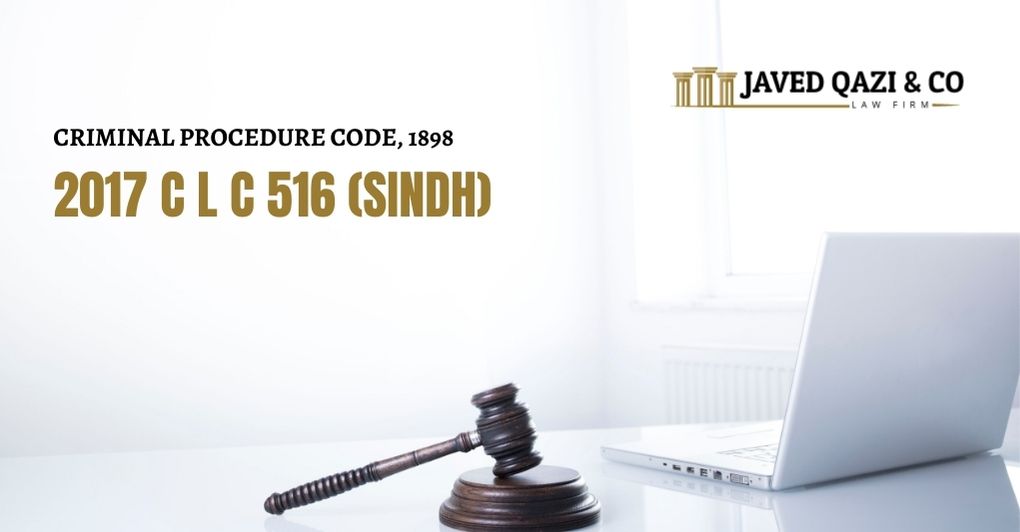
2017 C L C 516 (SINDH)
Ref, 1994 SCMR 1720, PLD 1963 SC 51
Divorce…wife will inherit
Section 7… Divorce… Husband died before completion of 90 days of divorce, divorce having not become effective , wife committed to be his widow and entitled to inherit his property.
3 Shares
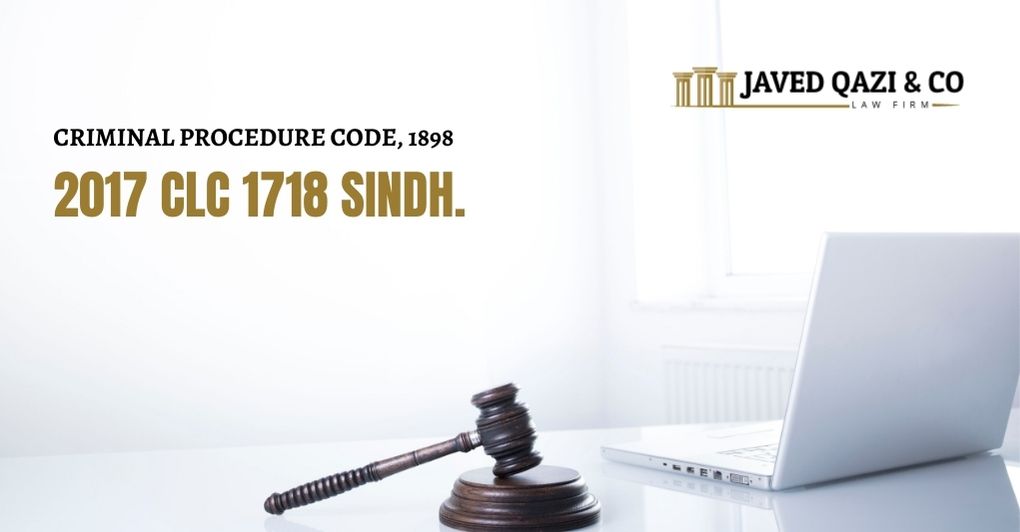
2017 CLC 1718 SINDH.
Khula for the overseas Pakistani woman living abroad can file khula to get divorce from family court Pakistan. She must have to adopt some step to fulfill the legal requirement of legal procedure. Under Muslim Family laws.
(i) She must execute a special power of attorney nominating any person as her personal attorney / representative. This power of attorney will be attested from Embassy of Pakistan or Pakistan High Commission in the country of her stay. It must be attested from the Ministry of Foreign Affairs in Pakistan.
(ii) The Special attorney nominated by the wife should have power to represent her, will appoint a lawyer and sign the documents on her behalf for khula proceedings in the family court.
(iii) The personal representative then can file a case, appear before the family case on behalf of wife through a lawyer, in a family court for obtaining khula decree.
(iv) After obtaining Khula decree and judgment the special attorney can start proceeding in Arbitration Council can be initiated for obtaining Divorce Certificate. Keep in mind for arbitration special attorney have permission for overseas wife to appear and proceed through special power of attorney.
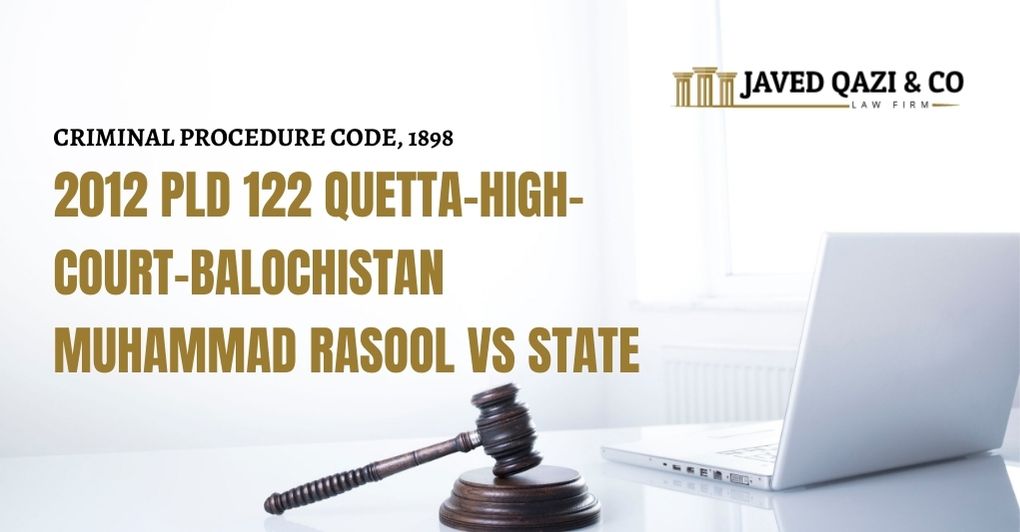
2012 PLD 122 QUETTA-HIGH-COURT-BALOCHISTAN MUHAMMAD RASOOL VS STATE
S. 12 & Preamble—Jurisdiction, determination of—Essentials—While determining jurisdiction it would be necessary to examine that the ingredients of the alleged occurrence have nexus with the object of the Anti-Terrorism Act, 1997, for determining whether a particular act is an act of terrorism or not, the motivation, object, design or purpose behind the same has to be seen—In case of any doubt with regard to the meaning of any particular provision, the Preamble of the Act may be considered to arrive at the proper conclusion—Preamble of Anti Terrorism Act, 1997, clearly manifests that the same has been promulgated to control the acts of terrorism, sectarian violence and other heinous offences as defined in S.6 of the said Act.
Preamble & S.32—Juvenile Justice System Ordinance (XXII of 2000), Preamble & S.14—
Distinguishing features of the two enactments—Under. Anti-Terrorism Act, 1997, courts acquire jurisdiction if the offence is triable by them, whereas under Juvenile Justice System Ordinance, 2000, courts acquire jurisdiction if offenders are juvenile, irrespective of the nature of offence committed by them–Provisions of Anti-Terrorism Act, 1997, under its S.32 have the overriding effect over all other laws including the Juvenile Justice System Ordinance, 2000, whereas under S.14 of said Ordinance its provisions shall be in addition to and not in derogation of any other law for the time being in force.
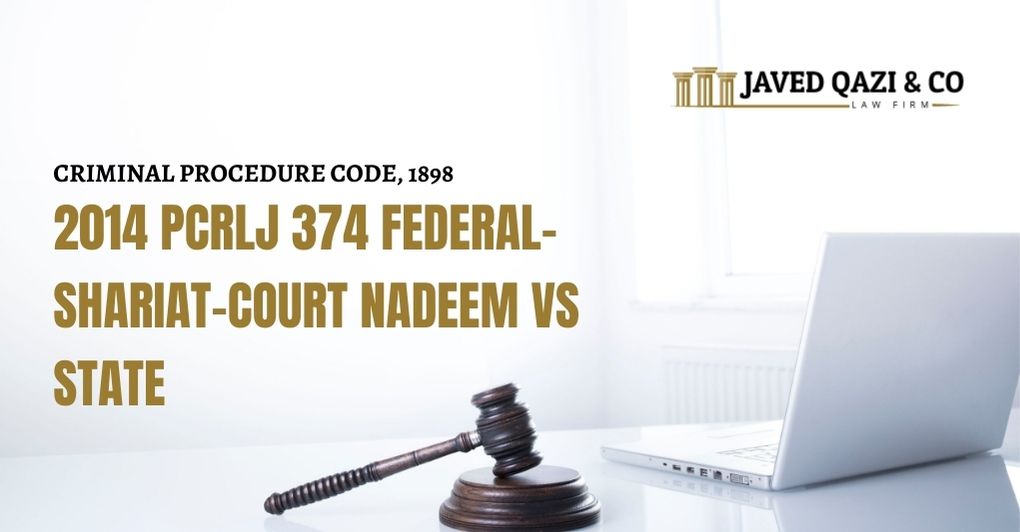
2014 PCRLJ 374 FEDERAL-SHARIAT-COURT NADEEM VS STATE
Preamble—Law did not make any distinction in the matter of appreciation of evidence in a case under Anti-Terrorism Act, 1997 or under normal criminal law—Credibility of witnesses had to be measured with the same yardstick, whether it was an ordinary crime or a crime striking terror in society—Law did not make any distinction either in leading of evidence in its assessment—Rule was one and the same, that was intrinsic worth of testimony and the fact, that it stood the test of cross-examination—Contradictory versions of the prosecution witnesses made before Anti-Terrorism Court and then before court of ordinary jurisdiction, would shake the entire foundation of the prosecution case—By no stretch of imagination, it was possible to reconcile the conflicting statements of the same prosecution witnesses regarding the same event—Said contradiction would sufficiently furnish a clue to veracity of the testimony of those witnesses, and shake their trustworthiness.
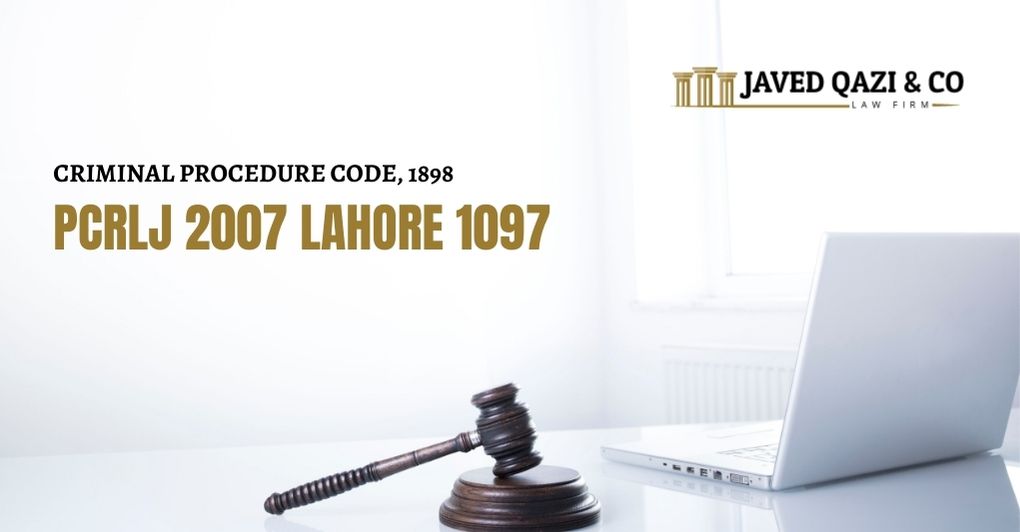
PCRLJ 2007 LAHORE 1097
—S. 7(e)—Appreciation of evidence—Abductee had rightly picked up all the three accused in the identification parade and had also identified them in the Court—Demand of ransom by the accused and payment of Rupees four Ins to them as such according to their instructions had been proved on record—Offence under S.7(e) of Anti-Terrorism Act, 1997, being non-compoundable , any compromise between the parties was of no consequence—Accused had not led any evidence to establish their friendship with the abductee or regarding the complicity of the abductee himself in the crime—Entire ransom amount had been recovered from accused who were arrested by the police from the house on the pointation of abductee—Abductee had no motive for false implication of accused in the case—Incriminating recoveries from the accused including the ransom amount, pistols with live cartridges, mobile phone and motorcycle of abductee, had further connected the accused with the offence—Investigating Officer in the peculiar circumstances of the case could not possibly join persons from the public in recovery proceedings, even otherwise police, witnesses were as good witnesses as other witnesses—Recoveries had corroborated the evidence furnished by the prosecution witnesses—Even if the recoveries had not been proved in a case of kidnapping or abduction for ransom, the determining factor was the object behind the crime—Conviction and sentence of accused were upheld in circumstances.
2014 PLD 644 MUHAMMAD YOUSAF v State
Preamble, Third Sched., Ss.1, 6, 7, 23 & 34—Constitution of Pakistan, Art.199—Constitutional petition—Transfer of case from Anti- Terrorism Court to regular court—Scope of S.23 of the Anti-Terrorism Act, 1997––
Anti– Terrorism Court dismissed applications of accused involved in different offences namely murder by firing, acid throwing and injury caused by firing in mosque, for transfer of their cases to regular courts—Validity—Purpose of Anti-Terrorism Act, 1997 was to prevent terrorism, sectarian violence and conducting speedy trial of heinous offences—In order to decide whether an offence was triable under the Anti-Terrorism Act, 1997 or not, the courts had to see whether the act had tendency to create sense of fear and insecurity in the mind of people or a section of society—Such act might not necessarily have taken place within the view of general public—
Schedule annexed to a statute was as important as the statute itself—Schedule could be used to construe the provisions of the body of the Act—Third Schedule to the Anti-Terrorism Act, 1997 had to be given its due importance and, first three paragraphs of the same were general in nature while the fourth paragraph specifically described offences—In order to bring an offence within ambit of Anti-Terrorism Act, 1997 and the jurisdiction of the Anti-Terrorism Court, nexus of such offence with S.6 of the Anti-Terrorism Act, 1997 was a pre-requisite—
Paragraph 4 of the Schedule to the Anti-Terrorism Act, 1997 categorically mentioned the offences which would be tried only by the Anti-Terrorism Court—Offences in question were within the purview/ambit of the paragraph 4 of the Third Schedule to the Anti-Terrorism Act, 1997 and were triable by the Anti-Terrorism Court—Petitions were dismissed.
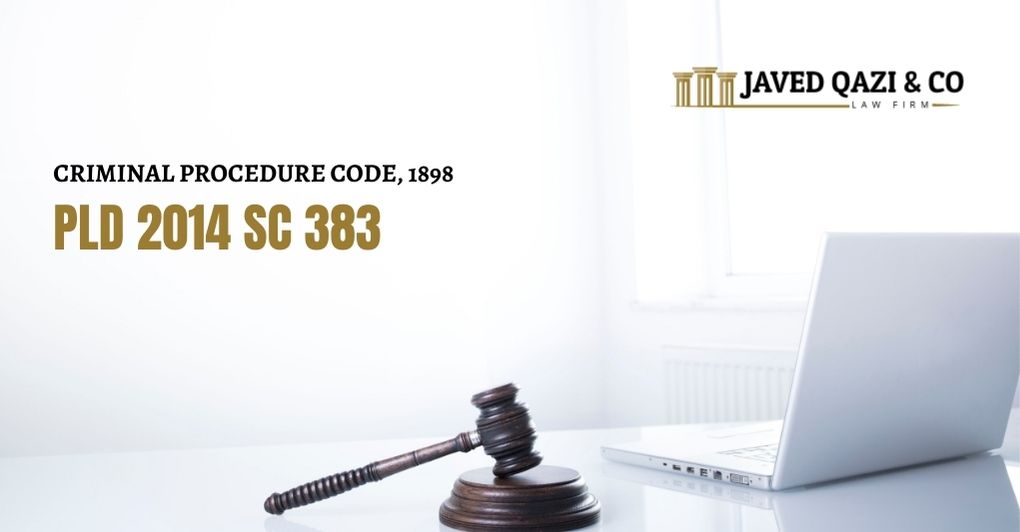
PLD 2014 SC 383
S. 345— Penal Code (XLV of 1860),Ss. 302(b), 324, 353, 148, 149 & 337-F(iii)—Anti-Terrorism Act (XXVII of 1997), Ss.6(m) & 7(a), (c) & (h)
—Constitution of Pakistan, Art.188—Review of Supreme Court judgment—Murder of police official while on duty—………………..—Regarding first count of death sentence under S.302(b), P.P.C, accused entered into a compromise with legal heirs of deceased and compensation had also been paid, but second count of death under S.7 of Anti-Terrorism Act, 1997 had its own implications and was not compoundable under Ss.354(5) & (7), Cr.P.C—Compromise between parties was accepted (only) to the extent of conviction under S.302(b), P.P.C and accused was acquitted of said charge—Regarding death sentence under S.7 of Anti-Terrorism Act, 1997, quantum of said sentence could be examined in the present case due to its peculiar facts—Sentence of death awarded to accused under S.7 of Anti-Terrorism Act, 1997 was converted into life imprisonment without extending benefit of S.382-B, P.P.C, as the same was not allowed by Trial Court, High Court and the Supreme Court—Review petition was disposed of accordingly.
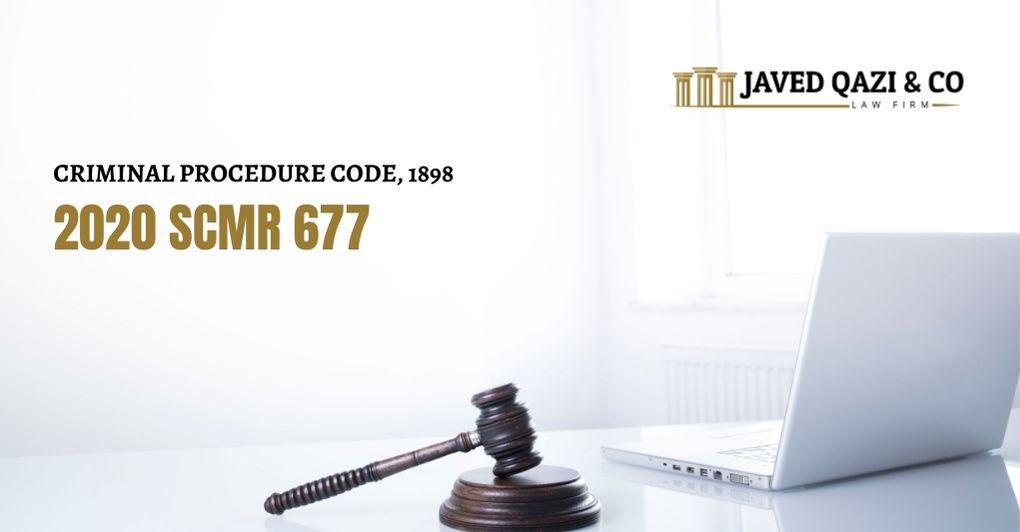
2020 SCMR 677
S. 497(2)— Penal Code (XLV of 1860), Ss 324, 34, 337-A(ii), 337-F(ii) & 337-D—Attempt to commit qatl-i-amd, common intention, shajjah-i-mudihah, ghayr-jaifah-badiah, jaifah—Bail, grant of—Further inquiry—Case of cross-version FIRs—During the occurrence two persons from accused side also sustained injuries but those injuries had not been disclosed in the FIR—Cross version FIR in such regard was also recorded and challan in both cases i.e. FIR and cross version had been submitted—In such circumstances, it was for the Trial Court to determine as to who was the aggressor and who was aggressed upon, after recording evidence of the parties—Case against the accused persons called for further enquiry falling within the ambit of S. 497(2), Cr.P.C .—Accused persons were granted bail.




